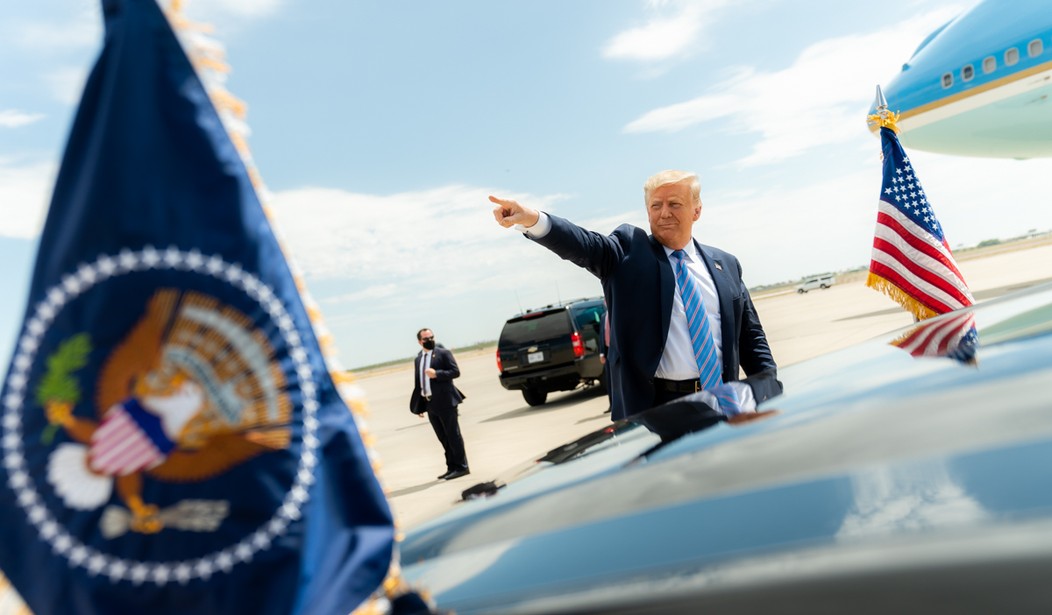This month, two Arab Muslim states — Bahrain and the United Arab Emirates (UAE) — normalized relations with the Jewish State of Israel, an earth-shattering diplomatic breakthrough long considered utterly unthinkable. Shortly before that, two Balkan countries put aside their historic enmity and normalized relations — and promised to open embassies in Jerusalem, recognizing the City of David as the capital of Israel. Each of these separate deals would be enough to get Trump in the history books, and the president has received three nominations for the Nobel Peace Prize in the wake of these tremendous accomplishments.
One Norwegian parliamentarian and one Swedish parliamentarian each nominated Trump for the Nobel Peace Prize. The Norwegian, Christian Tybring-Gjedde, highlighted the historic UAE peace deal while the Swede, Magnus Jacobsson, focused on the Serbia-Kosovo deal.
On Monday, Sky News reported on a third Nobel Prize nomination for Donald Trump, this time coming from four law professors in Australia. Law professor David Flint announced he was nominating Trump on the basis of the “Trump Doctrine.”
“He went ahead and negotiated against all advice, but he did it with common sense. He negotiated directly with the Arab states concerned and Israel and brought them together,” Flint told Sky News.
Flint described the Trump Doctrine as “something extraordinary,” based on “common sense” and “national interest.”
“What he has done with the Trump Doctrine is that he has decided he would no longer have America in endless wars, wars which achieve nothing but the killing of thousands of young Americans,” the professor argued. “So he’s reducing America’s tendency to get involved in any and every war.”
“The states are lining up, Arab and Middle-Eastern, to join that network of peace which will dominate the Middle-East,” Flint added. “He is really producing peace in the world in a way in which none of his predecessors did, and he fully deserves the Nobel Peace Prize.”
While President Barack Obama campaigned on peace and withdrawing from Iraq, he also sent U.S. troops into Syria. His withdrawal tragically enabled the growth of the Islamic State (ISIS).
President Trump also promised an end to America’s endless wars, and his approach has proven more successful. Trump invested heavily in the U.S. military, aiming to achieve peace through strength. He is scaling back U.S. troops in foreign lands. Trump has encouraged hydraulic fracturing and other energy developments that made America no longer reliant on Middle-Eastern oil.
For decades, countries like the UAE and Bahrain refused to recognize the Jewish state, standing in solidarity with the Palestinians and likely terrified of nearby Iran and its Iranian Revolutionary Guard Corps (IRGC), which had a massive presence in the Middle East before Soleimani’s death.
Trump shook up the Middle East by moving the U.S. Embassy to Jerusalem, abandoning the disastrous Iran nuclear deal, and assassinating the terrorist Soleimani. Experts warned that these moves would spark a war, perhaps even a world war. Yet these historic events laid the groundwork for a massive transformation in Middle East diplomacy — a previously unimaginable transformation.
Indeed, it is difficult for Americans to realize just how monumental this diplomatic shift is. Before the signing of the Abraham Accords, Bahrain and Saudi Arabia announced they would open their skies to Israeli flights to the UAE. As part of its rapprochement with Israel, the UAE agreed to order hotels to serve Kosher foods in Abu Dhabi, delivering a powerful symbol of Jewish acceptance in a notoriously anti-Semitic part of the world.
In Europe, the Balkans are a notoriously fiery region, with centuries-long animosities sparking multiple wars, including World War I. The dueling Muslim and Christian empires of Turkey and Austria-Hungary wrestled to rule over ethnic groups that hated one another and religious minorities that proved a thorn in any ruler’s side. Yet Trump brought Muslim-majority Kosovo and Christian-majority Serbia together for a historic agreement that included promises to set up embassies in Jerusalem.
If Democratic nominee Joe Biden wins in November, he may undo much of this impressive progress by reinstating the Iran nuclear deal. Unfortunately, much of the legacy media has effectively buried news of these historic diplomatic developments. If Trump wins the Nobel Peace Prize, however, it would be impossible to deny his extraordinary successes.
President Barack Obama received a Nobel Peace Prize for his “extraordinary efforts to strengthen diplomacy and cooperation between people.” President Donald Trump should receive a Nobel Peace Prize for his extraordinary results at establishing historic diplomacy in the Middle East.
Sadly, it remains unlikely that the Nobel committee will honor Trump’s success in this arena. The Nobel committee is likely to get too stuck on “Orange Man Bad” to reward the orange man’s historic results in the same way it honored Obama’s efforts.
Editor’s Note: Want to support PJ Media so we can continue telling the truth about the 2020 election? Join PJ Media VIP TODAY and use the promo code LAWANDORDER to get 25% off your VIP membership.
Tyler O’Neil is the author of Making Hate Pay: The Corruption of the Southern Poverty Law Center. Follow him on Twitter at @Tyler2ONeil.









Join the conversation as a VIP Member